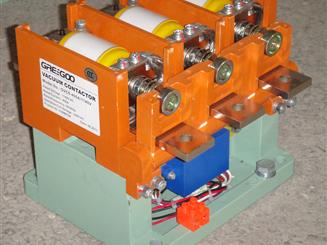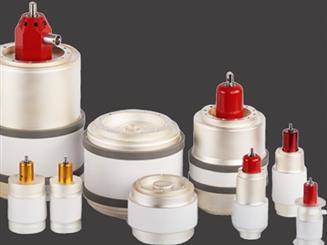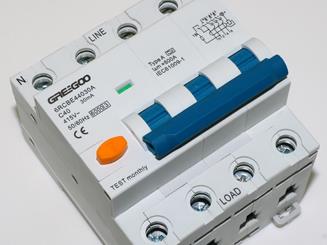What is a DC Solid State Relay? How about it's feature, application and how to choose a suitable DC SSR?
A DC Solid State Relay (DC SSR) is an electronic switching device that uses semiconductor components, typically thyristors or triacs, to control the flow of current in a DC (Direct Current) electrical circuit. Unlike traditional electromechanical relays that use coils and mechanical contacts to make or break connections, solid state relays use semiconductor switching elements, which makes them faster, more reliable, and longer-lasting in many applications.
Features:
Fast Switching: DC SSRs can switch on and off rapidly, typically within microseconds, making them suitable for applications requiring high-speed switching.
No Moving Parts: Unlike electromechanical relays, DC SSRs have no moving parts, which means they are less prone to wear and tear, resulting in longer lifespan and higher reliability.
Quiet Operation: Since there are no mechanical contacts to physically open or close, DC SSRs operate silently without the clicking sound associated with electromechanical relays.
Optical Isolation: Many DC SSRs incorporate optical isolation, where an optocoupler or photocoupler separates the input (control) and output (load) circuits, providing electrical isolation and protection.
Low Power Consumption: DC SSRs typically consume less power compared to their mechanical counterparts, especially when in the "on" state.
Applications:
DC SSRs find applications in a wide range of industries and scenarios, including:
Industrial Automation: DC SSRs are used for switching DC loads such as solenoids, heaters, lamps, and motors in industrial automation systems.
Photovoltaic (PV) Systems: DC SSRs are employed in solar power systems to control the connection and disconnection of photovoltaic panels and battery banks.
Medical Equipment: They are used in medical devices for precise control of various components and for patient safety.
Telecommunications: DC SSRs are used in telecom systems to control power distribution and backup systems.
HVAC (Heating, Ventilation, and Air Conditioning): DC SSRs can be used in HVAC systems for controlling fans, pumps, and heating elements.
Lighting Control: They are employed in lighting control systems for dimming or switching LED lights.
|
Choosing a Suitable DC SSR: When selecting a DC SSR for a specific application, you should consider the following factors:
|
 |
To get more information about Greegoo's DC solid state relays, just click the below link: DC load/output Solid State Relays

What is the purpose of a vacuum contactor?
In summary, the purpose of vacuum contactors is to provide precise and reliable control over electrical power in various applications. Their ability to handle high currents, suppress arcing, and facilitate frequent switching makes them essential components in industrial, commercial, and transportation systems where efficient and controlled power distribution is critical.
Read More
Vacuum Capacitor, fixed and variable type.
Our fixed and variable vacuum capacitors are fully compatible and can be used as direct replacements for models from COMET and Jennings such as CVBA-500/BC/5-BEA-L, CVFP-1000-30S, CVDP-2300-15S, UCSX-1000-15S and many more.
Read More
1.14 kV Vacuum Contactors: Enhancing Safety and Efficiency in Low-Voltage Switching for Industry Application.
1.14 kV vacuum contactor is a specialized type of contactor that uses vacuum interrupters to switch electrical circuits at high voltages. Vacuum contactors are widely used in various industrial applications due to their reliability, safety, and efficiency.
Read More
RCBO - electronic and magnetic type, type A and AC, maximum up to 40A
6kA RCBO, 4P/2P, type A/AC, 6A to 40A, electronic and magnetic tripping
Read More













